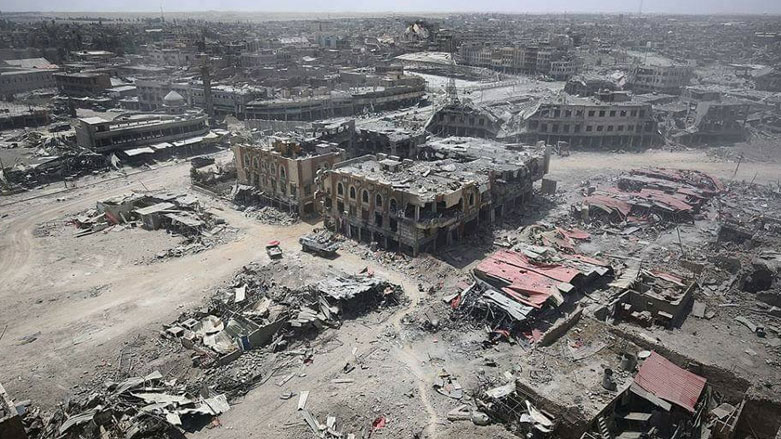Despite Mosul liberation, hundreds of thousands to remain displaced

MOSUL, Iraq (Kurdistan24) – Thousands of Internally Displaced Persons (IDPs) are likely to remain in displacement for months despite Iraqi forces declaring victory over the Islamic State (IS) in Mosul, according to the UN.
The United Nation’s High Commissioner for Refugees (UNHCR) painted a grim picture of the post-IS humanitarian situation in Mosul on Monday.
Roughly one million civilians fled Mosul since the start of the offensive over eight months ago, and many live in camps and precarious conditions.
In a statement released on its website, the UNHCR said it is likely that “many thousands of people may have to remain in displacement for months to come.”
“Many have nothing to go back to, due to extensive damage caused during the conflict, while key basic services, such as water, electricity and other key infrastructure, including schools and hospitals, will need to be rebuilt or repaired,” the statement read.
“Rebuilding is likely to be slow and costly but is essential to achieve stability and end the cycle of conflict,” the report continued.
The offensive to liberate Mosul from IS militants has caused considerable damage to civilian infrastructures, especially in the western part of the city where the fiercest clashes took place.
The UNHCR urged that civilians should not be forced to return to their homes which may be in “unsafe areas,” and it would take time to clear the areas of mines and explosives.
Iraqi Prime Minister Haider al-Abadi, who visited Mosul on Sunday to declare “victory” over the extremist group, noted the natural response to IS was to “live together.”
However, the defeat of IS in Mosul “does not signal an end to conflict in Iraq,” the statement added.
The UNHCR stressed IS militants still control areas such as Tal Afar west of Mosul and the city of Hawija in the province of Kirkuk, as well as vast swaths of land at the border with Syria.
“While there may be an end to military conflict in Mosul, there is still no end in sight to the humanitarian crisis,” it said.
Many view the fall of IS’ last major stronghold in Iraq as the most symbolic victory against the group since it overran northern Iraq in 2014.
In a similar statement, Oxfam noted while “the retaking of Mosul will no doubt inspire hope among many Iraqis,” Mosul residents will “continue to face severe risks from revenge attacks and explosives, and a lack of clean water, healthcare, and other basic services.”
Editing by Karzan Sulaivany
